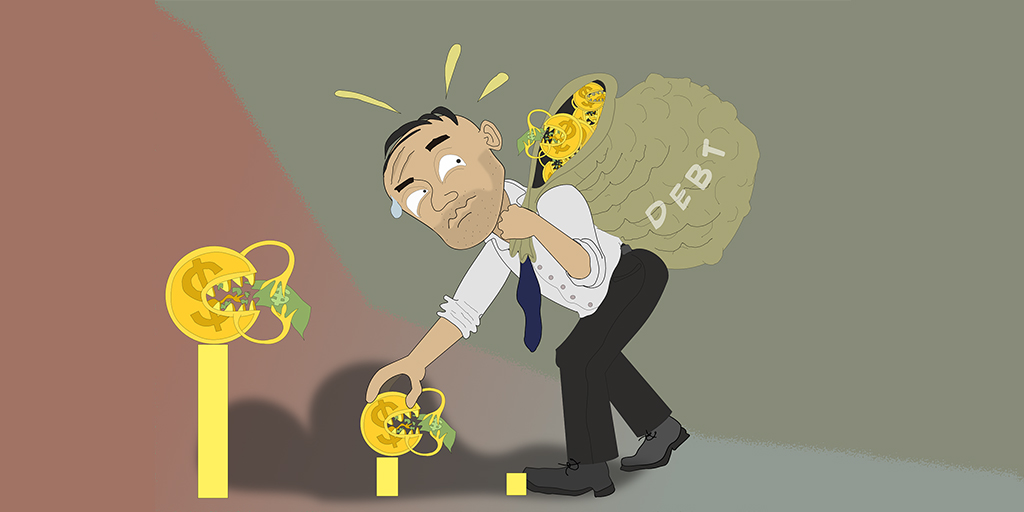A loan is a serious financial obligation that you need to repay. You should know all there is to know about loans and be sure that you will be repaying the loan. However, you might not always be in control of the circumstances, and your finances might take a hit. It could lead to defaulting on an unsecured loan or a personal loan.
Loan Default Consequences
It depends upon the contract between you and the lender. But, in general, there can be severe consequences for personal loan default. Let’s look at some consequences of defaulting on an unsecured loan or personal loan:
1. There will be a negative impact on your credit score.
- Defaulting on an unsecured loan or personal loan can cause a downward spiral effect on your credit score. You should review and read your credit report to understand the impact carefully.
- A credit report is divided into a couple of sections. The credit score is highlighted in the first section. The repayments are mentioned in the second section.
- If you repay after 30 days of the due date, you will see a mark in the second section. However, if you pay after 60-90 days of the due date, it will be seen as a serious default.
- Your lender will alert the credit bureau in the case of general and personal loan default.
- Your credit history will note the negative report. The impact on the credit rating multiplies when defaulting on an unsecured loan. It might lead to a problem if you want to take a loan in the future.
2. The financial burden on you will grow.
- You will increase your financial burden if there is a personal loan default.
- You are not only liable to repay your personal loan but also obligated to repay the costs involved with late payment. These costs may be penalties or late fees.
3. Legal action or Arbitration
- The bank/NBFC who lent you the money might want to take legal action. They would like their money back, and legal action is where they might turn to settle the defaulted repayment. You would have to incur legal fees in such a case.
- If you do not repay your loan in the prescribed period, you might have to pay a substantially higher amount back to the lender.
Indian Law for Loan Defaulters
There can be severe loan default consequences if there is a personal loan or an unsecured loan default. The court might book you under Section 420 of the Indian Penal Code. The punishment in such a case involves imprisonment.
Legal Actions Against Defaulters
First and foremost, you would be placed on a loan defaulters list. It hampers your credit history and makes it difficult for you to secure a loan in the future. You could be booked under Section 420 of the Indian Penal Code.
You can also be jailed for a cheque bounce under Section 138 of the Negotiable Instruments Act of 1981.
Settling a Personal Loan Default
While getting a loan might be easy, sometimes paying it back might become a burden. You can follow the following to take care of personal loan default.
1. Don’t ignore your lender’s notification: Your lender will contact you if you miss out on your EMI. You might also receive emails or SMSs. If you ignore these notifications, the lender might pass your information to collection agencies. You should speak to your lender if you require more time to repay your loan and ensure that this doesn’t happen.
2. Default notice issuance: If you don’t respond to your lender’s calls and miss more than a couple of payments, your lender will issue a default notice. The notice helps inform the borrower that the lender might cash the post-dated cheques they provided if the borrower doesn’t respond to calls, messages, or emails. The lender can file criminal charges if a personal loan default is made through a bounced cheque.
3. Negotiate: We advise you to talk to your lender if there is any genuine reason for you to delay your loan repayment. You and your lender might find common ground and solutions to tackle the issue. Your lender might even give you some options to repay the loan.
Conclusion
There can be dire consequences if you default on your loan. Not only will you have a tarnished credit score, but you might also be booked under Section 420 of The Indian Penal Code or face criminal charges under Section 138 of The Negotiable Instruments Act.









